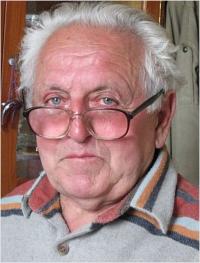There was some shooting almost every day

Download image
Josef Petýrek was born on 26. 8. 1937 in Roviny in Brdy. It was here and in the near-by Drahlín – where his parents moved in 1943 – that he spent his childhood and the war years. He was predominantly raised by a local German forest ranger, Arnošt Schröder, who inspired his life-long attachment to nature and forestry. After the war, Schröder was banished and Josef’s birthplace fell prey to the military training grounds that were established in Brdy. In 1952, Josef passed a special training for employees working in military zones in Prameny, during which he had the chance to see Šumava. He permanently moved to Šumava in 1959 and settled in Prášily which is just a stone throw away from the state border. He lived a partly adventurous and partly troublesome life. The troublesome part was related to the coexistence with the border guards and the soldiers who had their training grounds and shooting ranges in the area. Sometimes, the bullets were flying literally above his head. The exercises on the shooting ranges also restricted the free movement of local inhabitants. He also witnessed firsthand the peculiar life of the new inhabitants who came from the east and took the place of the displaced German population. In 1956, he and his wife moved to nearby Hartmanice where they still live today. Mr. Petýrek has developed a keen interest in the history of the region where he lives.
